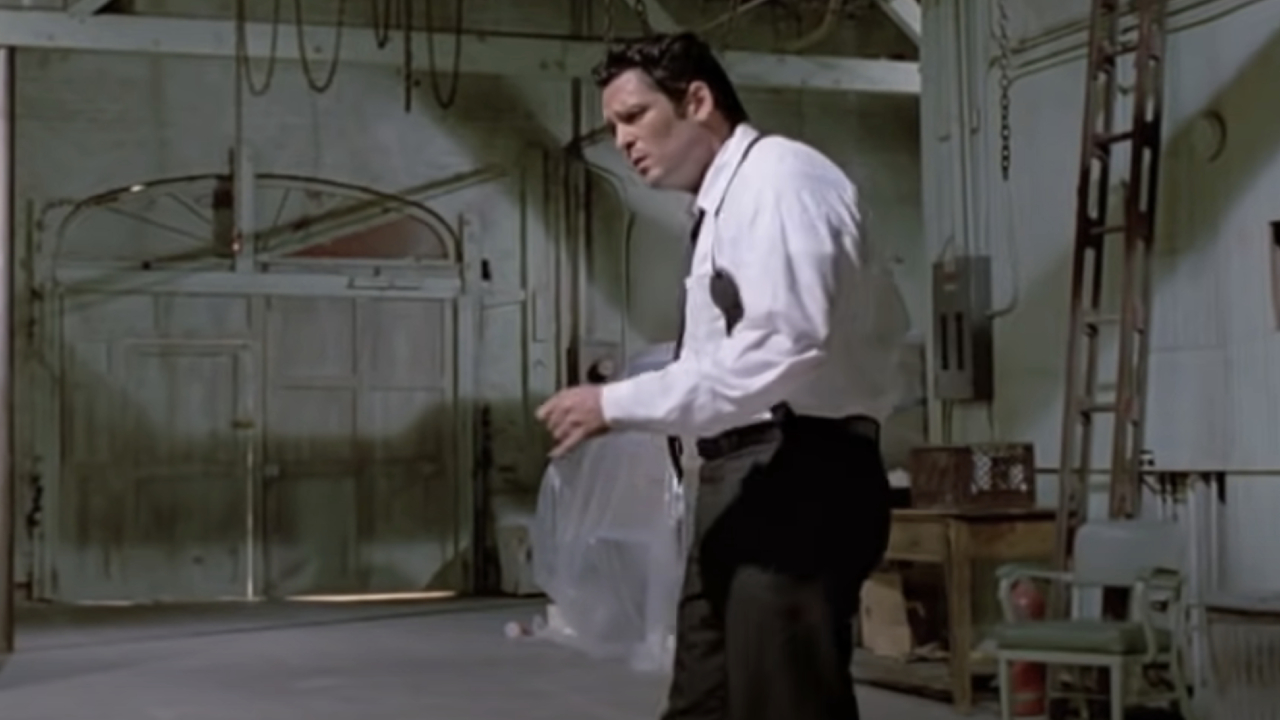The best uses of music in movies and TV shows have typically changed the way we perceive the songs in question forever, especially if the normally jovial tune is heard during or relates to a particularly intense or disturbing scene. Because of the way the following titles used some of the happiest radio hits of all time, we can never hear them again without our hearts skipping a beat.
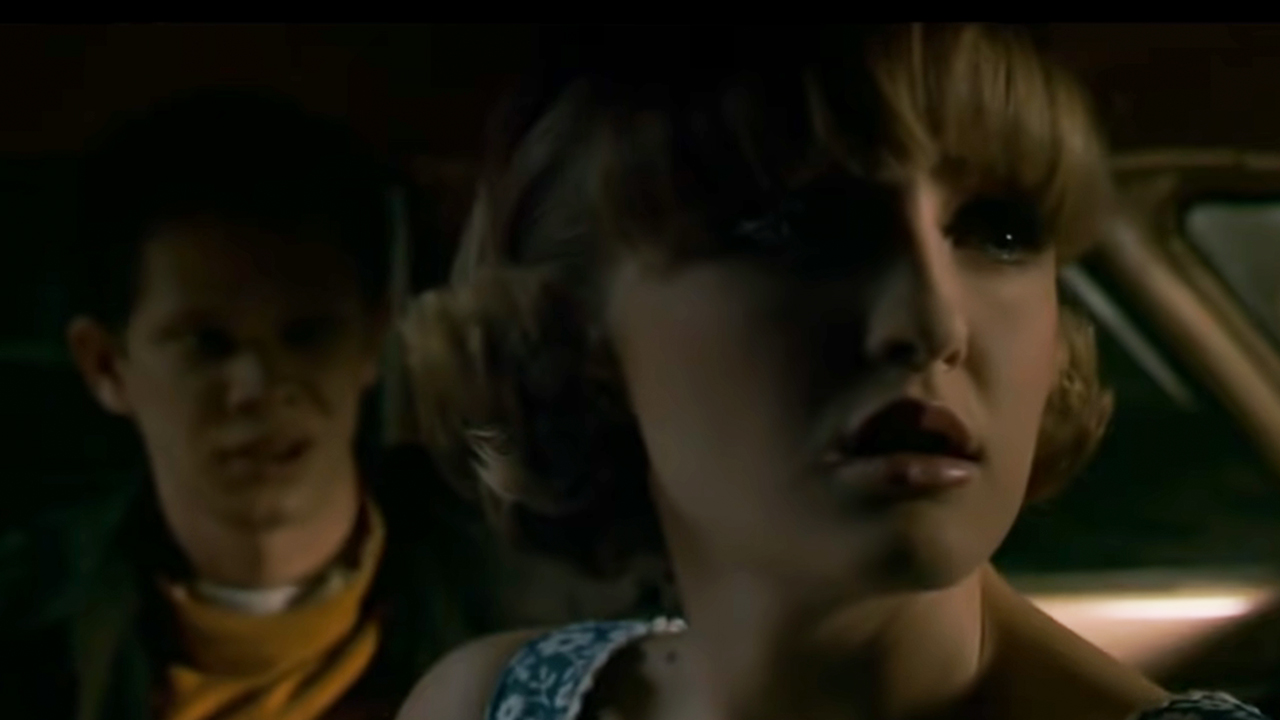
Zodiac ("Hurdy Gurdy Man" - Donovan)
The opening scene of Zodiac depicts a horrifying crime by the eponymous killer, accompanied by an otherwise relaxing folk ballad from 1968 called "Hurdy Gurdy Man." Coincidentally, Ione Skye, the daughter of the song's writer and performer, Donovan, makes an uncredited appearance in David Fincher's great true crime movie from 2007 as Zodiac Killer witness Kathleen Johns.
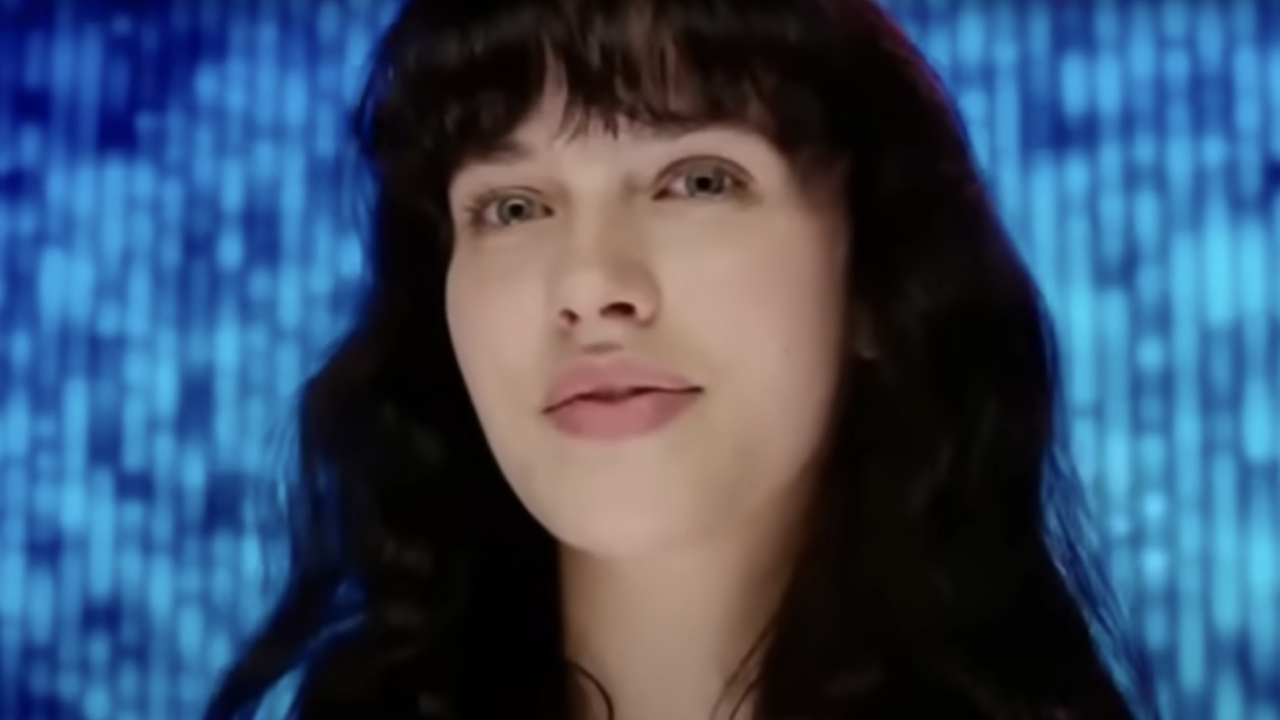
Black Mirror ("Anyone Who Knows What Love Is Will Understand" - Irma Thomas)
In one of the best episodes of Black Mirror (Season 1's "Fifteen Million Merits), Abi (Jessica Brown Findlay) auditions for Hot Shot by singing "Anyone Who Knows What Love Is Will Understand." Following this memorable scene from the sci-fi anthology series, the 1964 Irma Thomas hit would be featured in some capacity in every season since, offering plenty more reasons to feel unsettled by the feel-good romance tune.
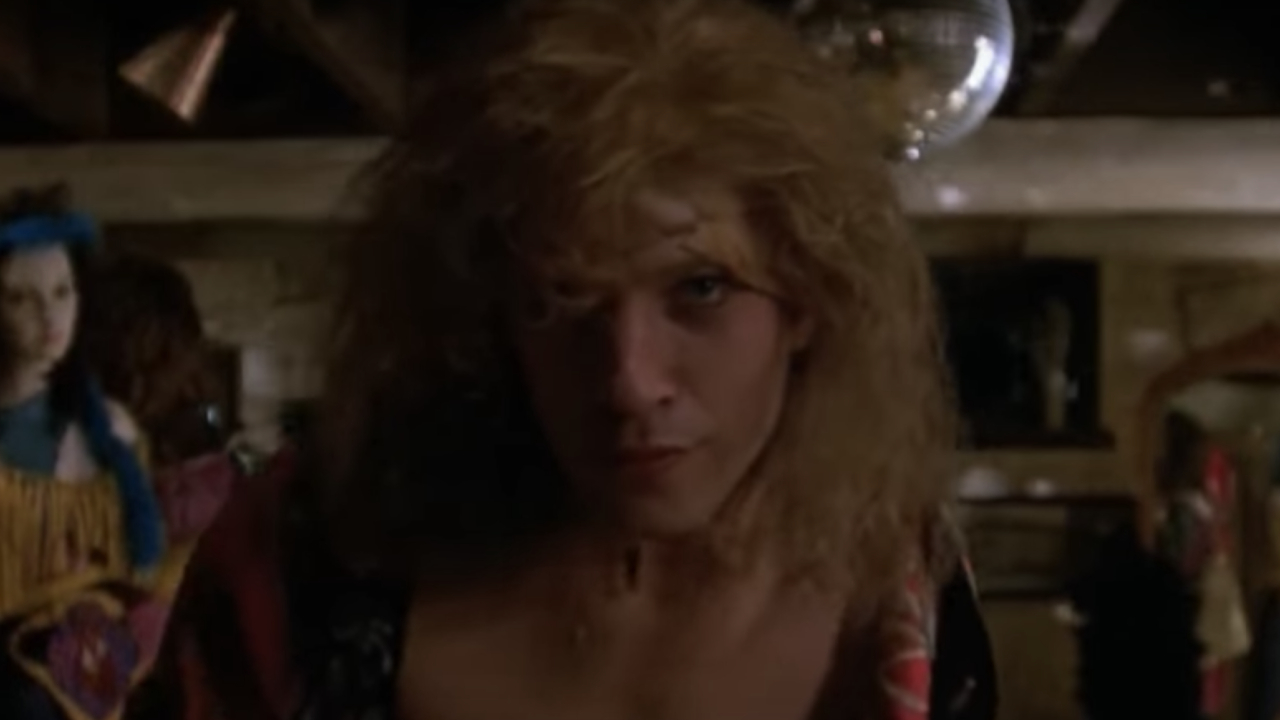
The Silence Of The Lambs (“Goodbye Horses” - Q Lazzarus)
According to the original writer of "Goodbye Horses," William Garvey, the 1988 one-hit-wonder performed by Q Lazzarus is about “the ability to lift one’s perception above [their] physical limitations." In that case, its inclusion in the terrifying Best Picture Oscar winner, The Silence of the Lambs, as serial killer Jame “Buffalo Bill” Gumb (Ted Levine) embraces his femininity through dance is a perfect match.
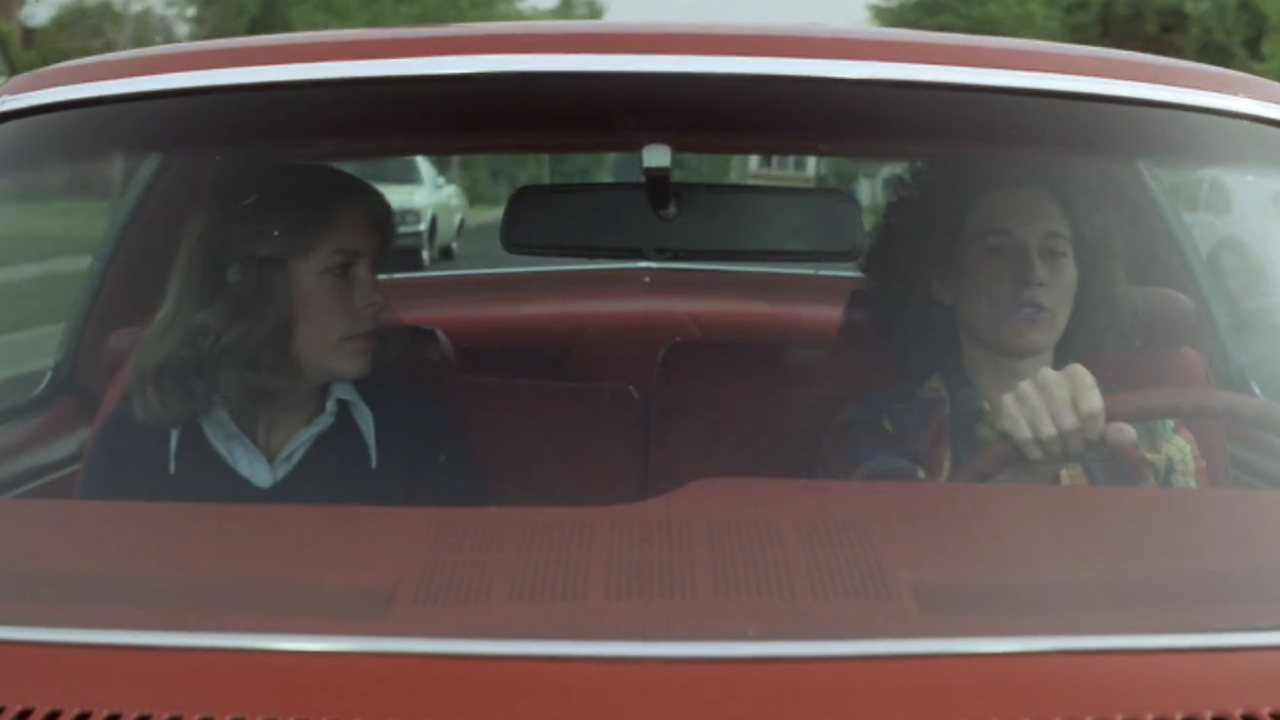
Halloween ("(Don't Fear) The Reaper" - Blue Öyster Cult)
To be fair, the lyrics to Blue Öyster Cult’s signature 1976 hit “(Don’t Fear) the Reaper” are not the happiest, referencing a romance destined to end similar to that of Romeo and Juliet. However, the world might have been less receptive to its creepier themes if not for its inclusion in one of the best horror movies of all time, 1978's Halloween, as Laurie Strode (Jamie Lee Curtis) and Annie Brackett (Nancy Kyes) are unwittingly being tiled Haddonfield’s own “reaper,” Michael Myers.
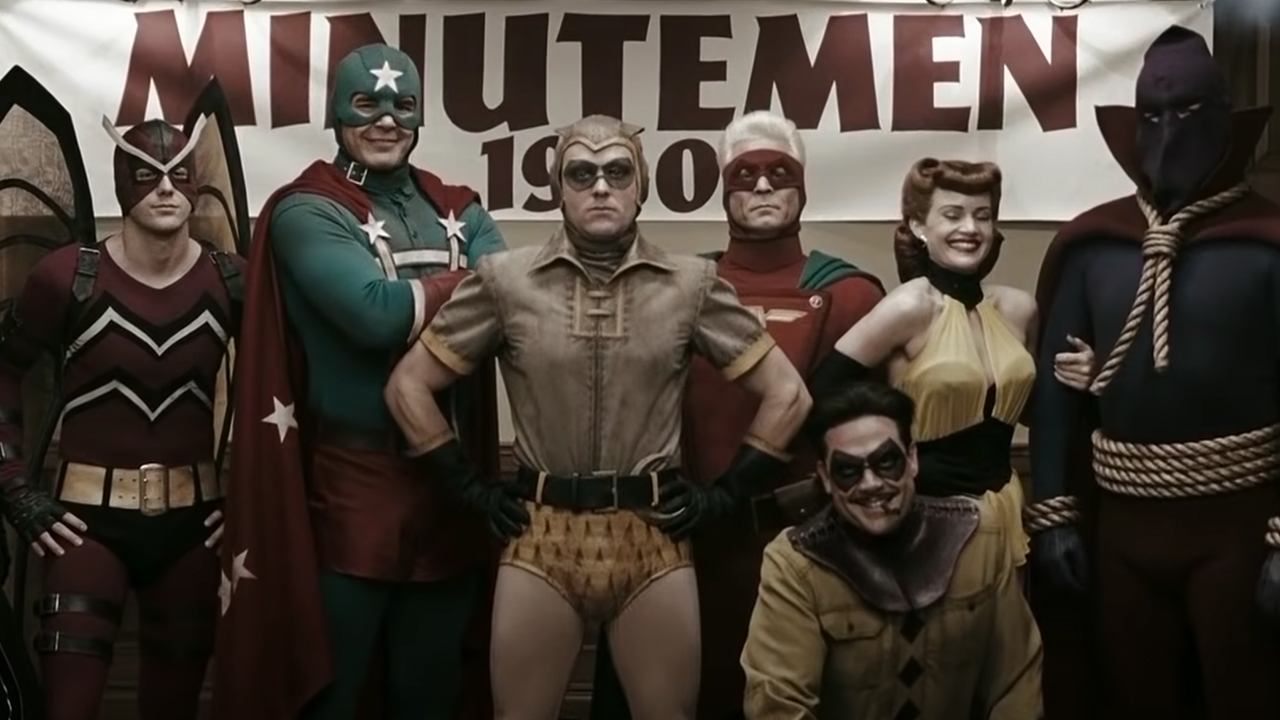
Watchmen ("The Times They Are A-Changin'" - Bob Dylan)
There is a dark thematic tone to most of Bob Dylan's earlier work, especially his 1962 breakthrough hit, "The Times They Are A-Changin'." The folk ballad's message of a society experiencing a revolution comes through effectively while playing over the opening titles of 2009's Watchmen, which traces the ups and downs of superheroes' contributions to history in the world Alan Moore's seminal graphic novel.
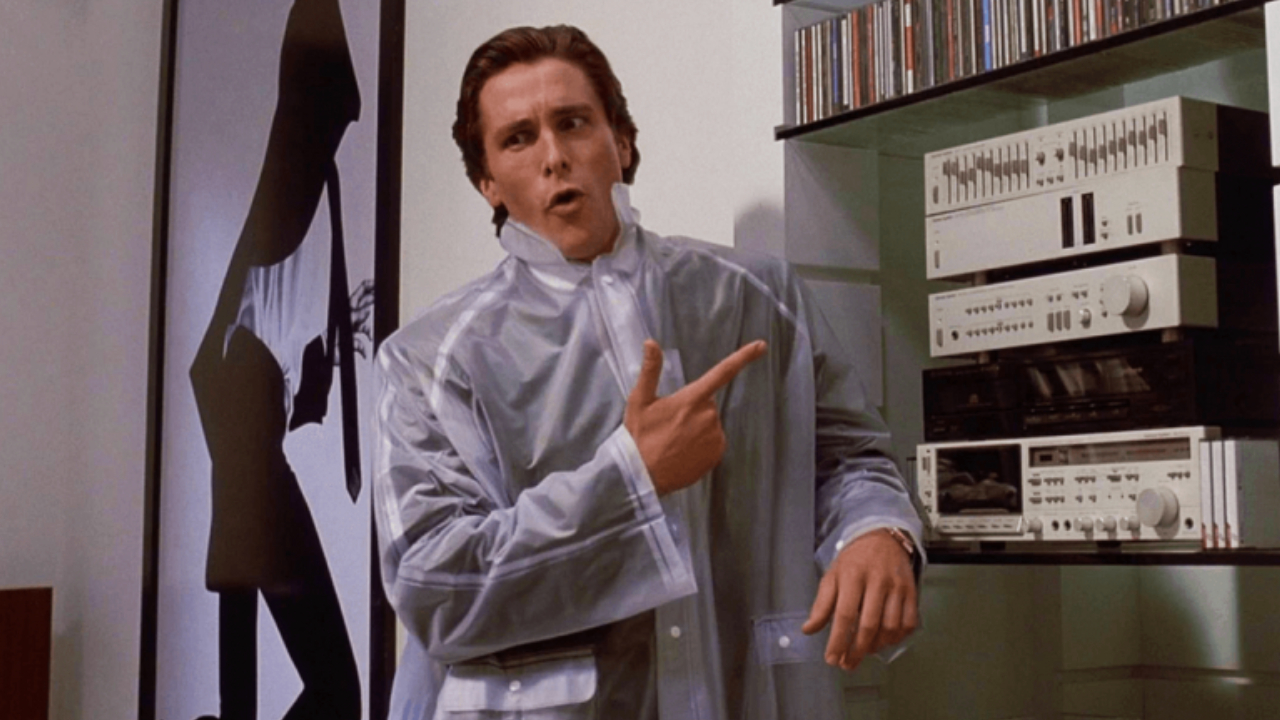
American Psycho (“Hip To Be Square” - Huey Lewis And The News)
Pop culture's most famous Huey Lewis and the News fan would have to be Patrick Bateman (Christian Bale), who provides an impassioned analysis of 1986's "Hip to Be Square," and the Fore! album in general, as he prepares to murder his colleague, Paul Allen (Jared Leto) in his apartment. Lewis himself would pay tribute to the memorable moment from American Psycho in a Funny or Die bit in which he exuberantly analyzes the 2000 psychological thriller as he prepares to murder “Weird Al” Yankovic.
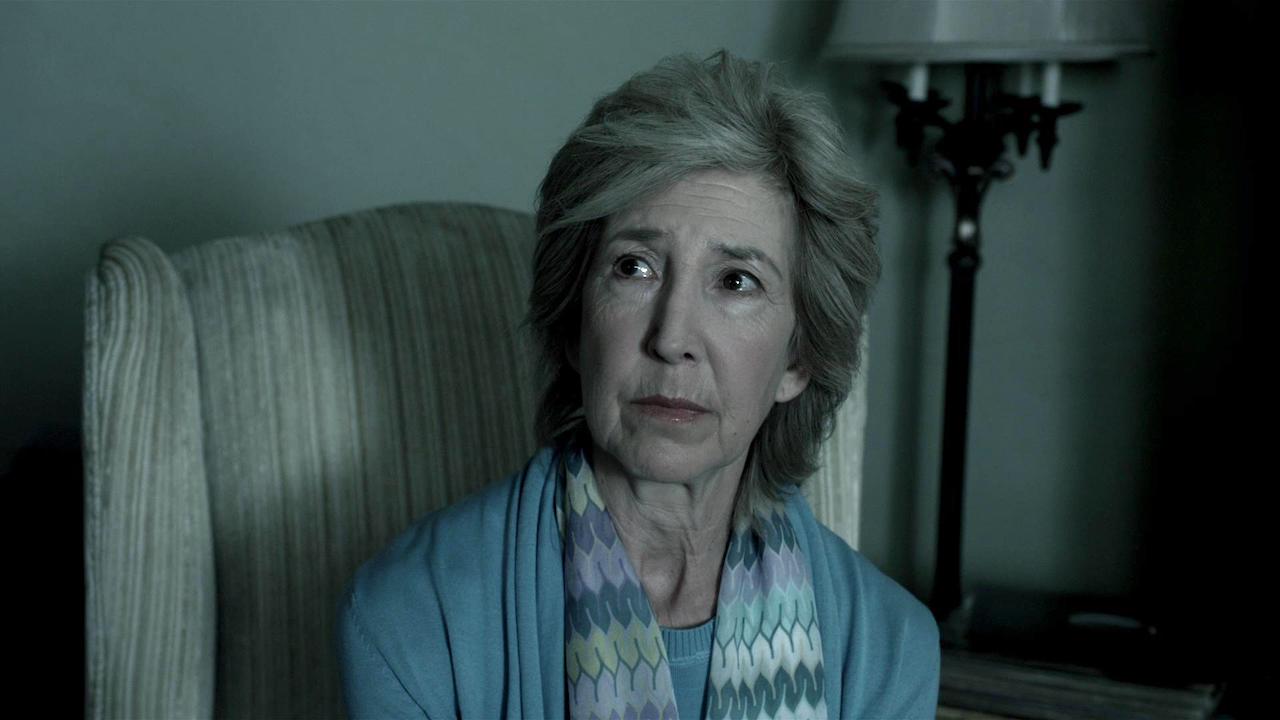
Insidious ("Tiptoe Through The Tulips" - Tiny Tim)
For years, the only creepy aspect of Tiny Tim's version of "Tiptoe Through the Tulips" was that the high-pitched vocalist was actually a lanky, 6'1" man. These days, since its prominent use in the first Insidious movie from 2011, audiences cannot help but picture the demonic "Man with Fire on His Face" when the romantic ukulele ballad plays.
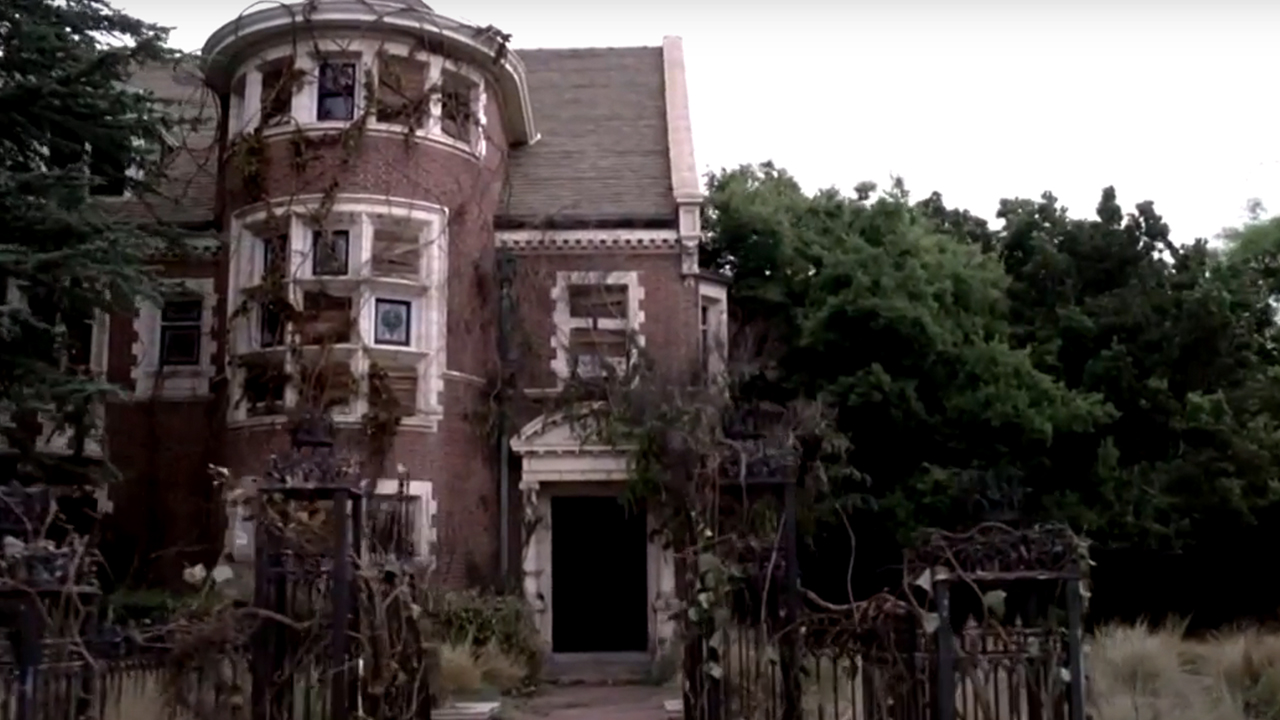
American Horror Story ("Tonight You Belong To Me" - Patience & Prudence)
The best-known version of writers Billy Rose and Lee David's "Tonight You Belong to Me" is by young sisterly duo Patience & Prudence, which became even more famous in 2011, thanks to American Horror Story. The playful 1956 tune about making the most of your time with a loved one appeared in four episodes of the horror anthology TV show's premiere season from 2011, taking place in a haunted house with an extensive history of murders.
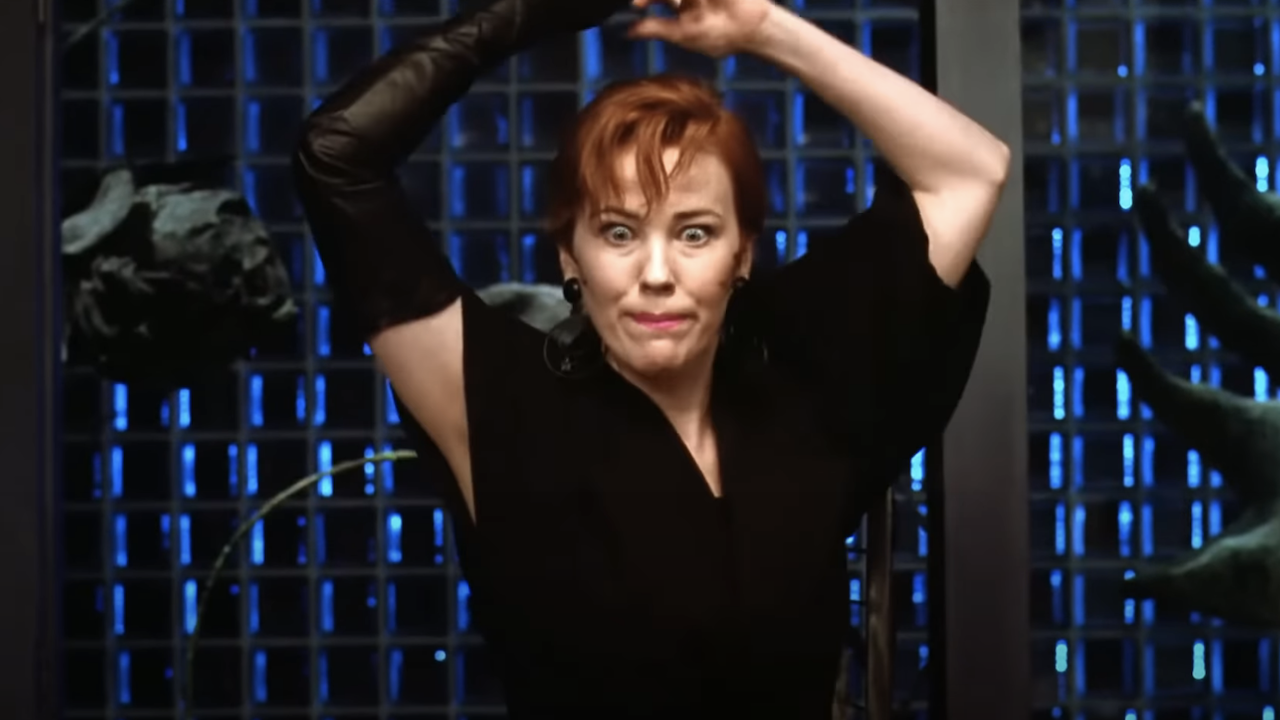
Beetlejuice ("Banana Boat (Day-O)” - Harry Belafonte)
In 1988's Beetlejuice, the ghostly Adam (Alec Baldwin) and Barbara Maitland (Geena Davis) attempt to scare off the Deetzes (Jeffrey Jones and Catherine O’Hara) by possessing them and their party guests into dancing and lip-synching to Harry Belafonte’s “Banana Boat (Day-O).” While the scene did not necessarily make the 1956 Calypso hit creepy, it would be forever entwined with the classic horror-comedy movie – a fact that Belafonte told Pitchfork he enjoyed.
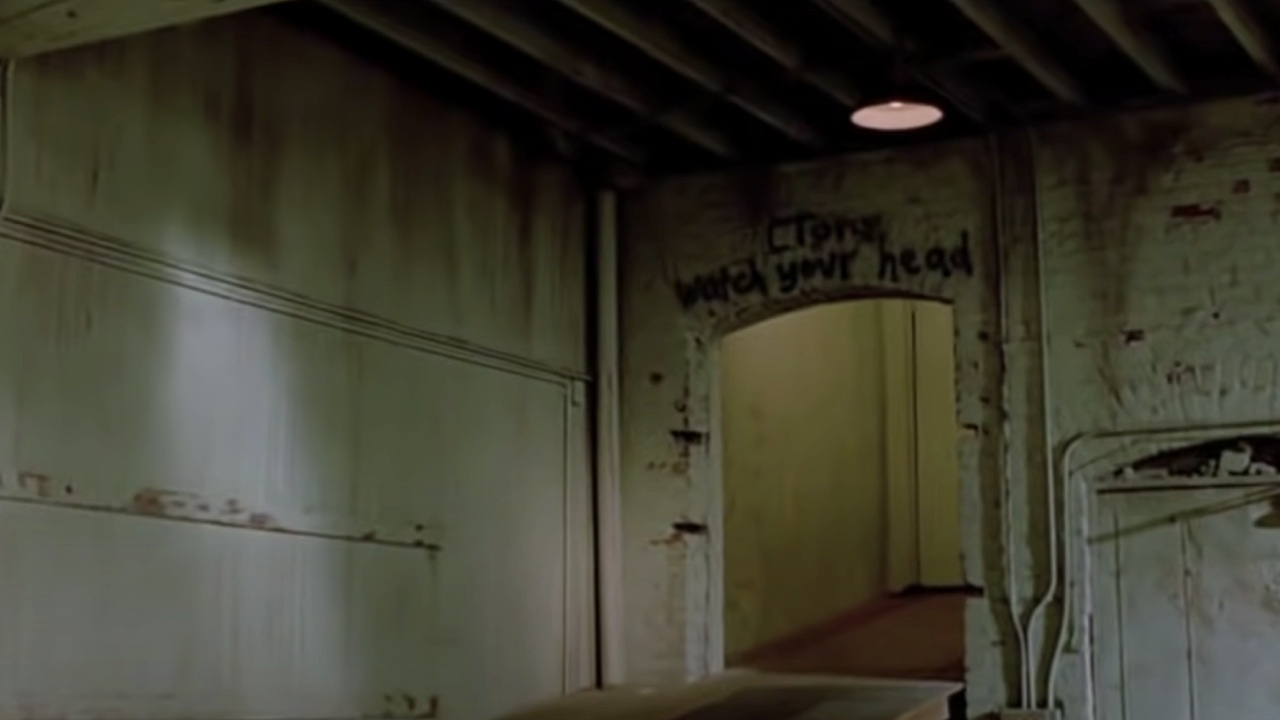
Reservoir Dogs ("Stuck In The Middle With You" - Stealers Wheel)
The first of many iconic musical moments in Quentin Tarantino's movies occurs in 1992's Reservoir Dogs, when Mr. Blonde (Michael Madsen) puts on K-Billy's Super Sounds of the '70s (which starts playing "Stuck In The Middle With You") and proceeds to torture Officer Marvin Nash (Kirk Baltz). We doubt there is a single person who can listen to Stealers Wheel's upbeat, 1973 rock single without imagining the criminal slicing the cop's ear off, even though that moment is thankfully kept off camera.
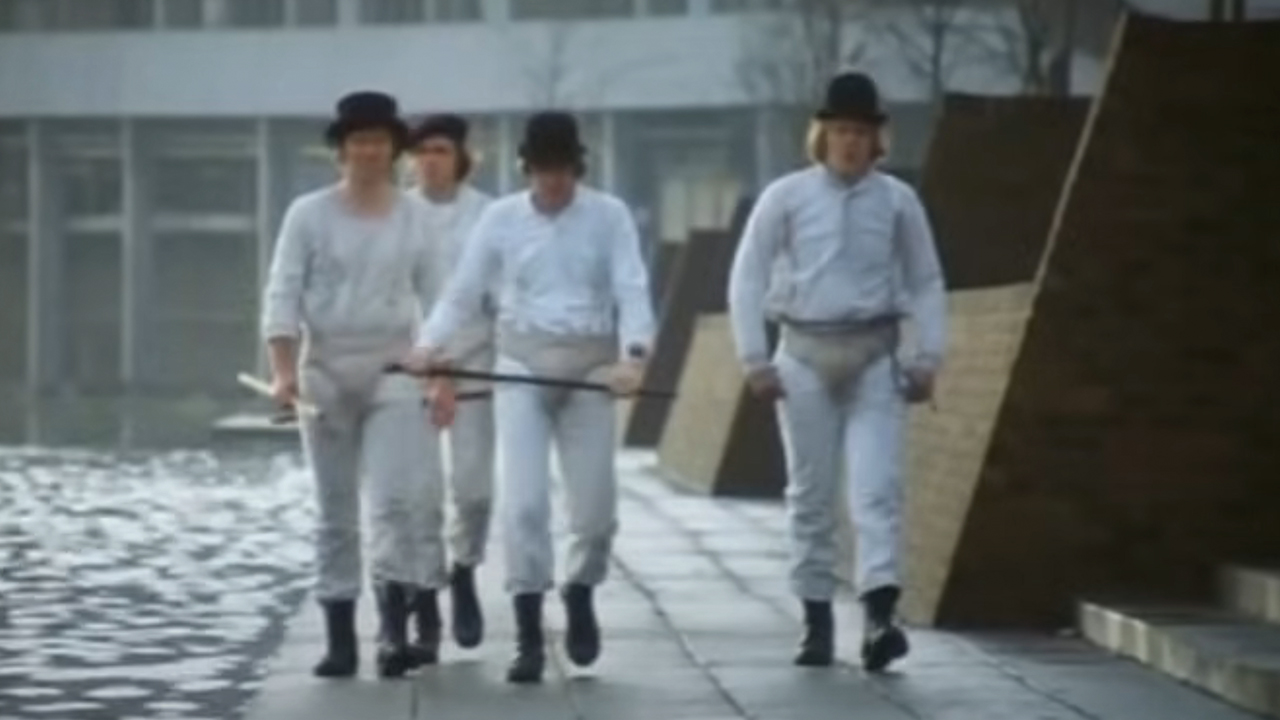
A Clockwork Orange (“Singin' In The Rain”)
If there is one cinematic use of 1929's "Singin' in the Rain" as, if not more, iconic as Gene Kelly's performance in the eponymous 1952 musical, it would be the rendition heard in A Clockwork Orange. As Alex DeLarge, Malcolm McDowell belts out the song about happiness that even weather cannot deter during one of the most unspeakably brutal moments from the 1971 Stanley Kubrick movie.

Stranger Things ("Running Up That Hill (A Deal With God)" - Kate Bush)
There have been many memorable musical moments from Stranger Things but none as impactful as its uses of "Running Up That Hill (A Deal with God)" in Season 4, which made Kate Bush's definitive track more popular than ever. The English art pop queen’s 1985 ballad first helps rescue Max (Sadie Sink) from Vecna's trance before a remixed reprise accompanies the disparate gang's multi-faceted defeat of the villain in the action-packed finale.
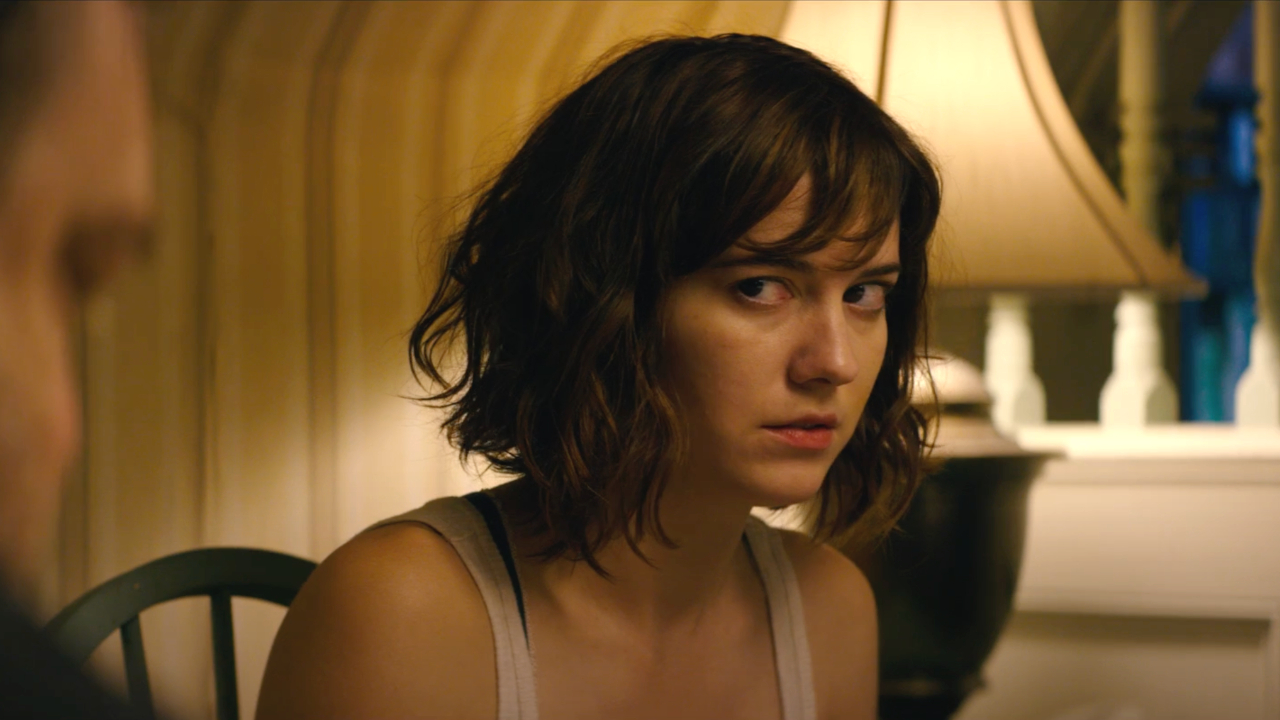
10 Cloverfield Lane ("I Think We're Alone Now" - Tommy James & The Shondells)
While it experienced a new life in the 1980s with Tiffany's cover, the original version of "I Think We're Alone Now" by Tommy James & The Shondells was reintroduced to modern audiences via 10 Cloverfield Lane. The cute pop tune about a couple enjoying their time on their own took on a whole new meaning when it appeared in the 2016 thriller, which takes place in an underground bunker inhabited by survivors of an unknown disaster.

Supernatural ("Carry On, Wayward Son" - Kansas)
"Carry On, Wayward Son" by Kansas would become the de facto theme for Supernatural after it was used in the season finale following the first one. In fact, the series finale of the hit series, following the adventures of paranormal hunters Dean (Jensen Ackles) and Sam Winchester (Jared Padalecki), was named "Carry On," after the 1976 rock epic.
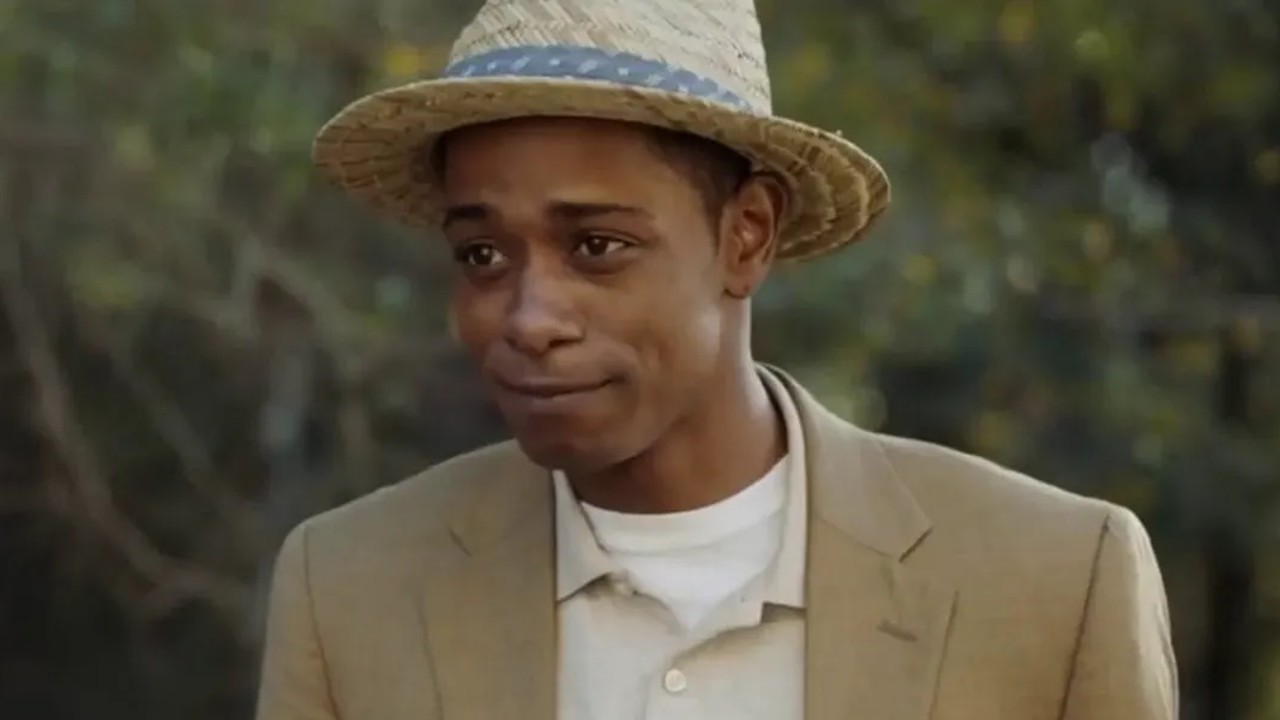
Get Out (“Run Rabbit Run” - Flanagan And Allen)
Originally released in the late 1930s and a hit during World War II, "Run Rabbit Run" became iconic to modern horror movie audiences as the first song featured in Jordan Peele's Oscar-winning 2017 thriller Get Out. The song is heard coming from the car that sneaks up on Andre Hayworth (LaKeith Stanfield), who tries to walk in the opposite direction before getting abducted.
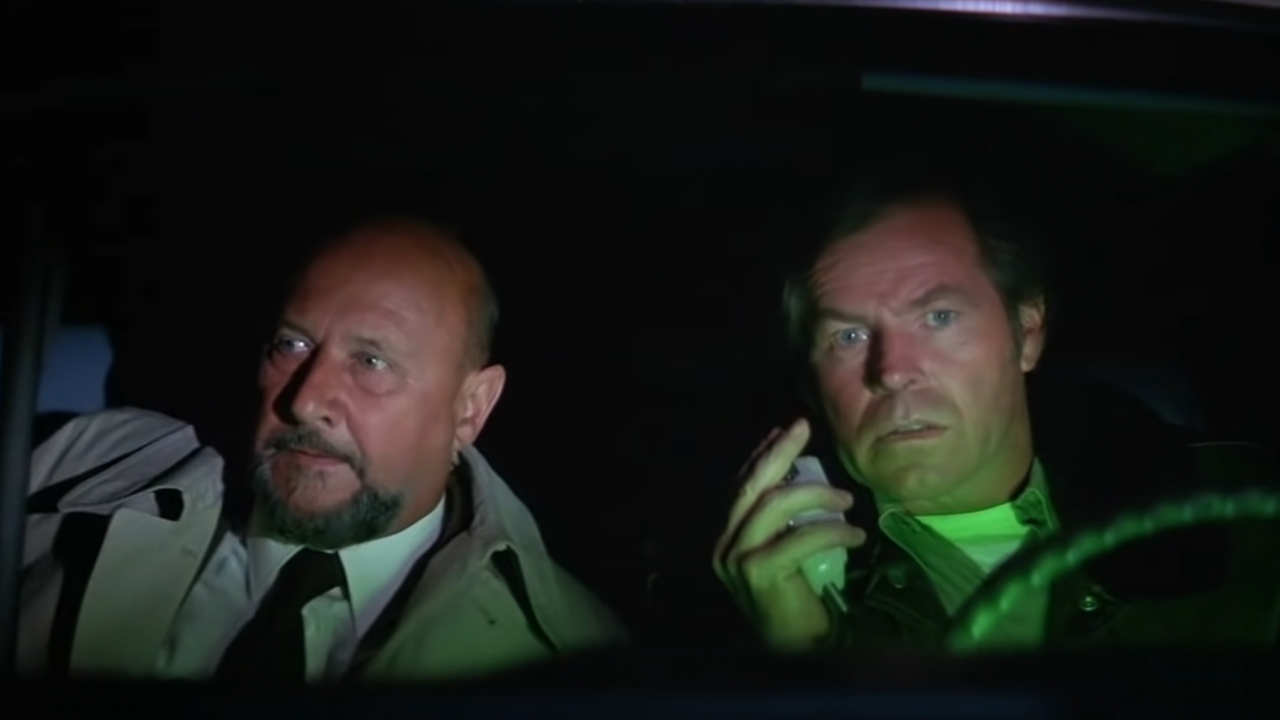
Halloween II (“Mr. Sandman” - Chordettes)
The second installment of the Halloween franchise from 1981 opens in an unexpected manner. Instead of John Carpenter's unmistakable score, we hear the Chordettes' endearing doo-wop hit, "Mr. Sandman," which might have had a more endurable reputation as a retroactively creepy song if not for its use in the time travel movie classic, Back to the Future, four years later.
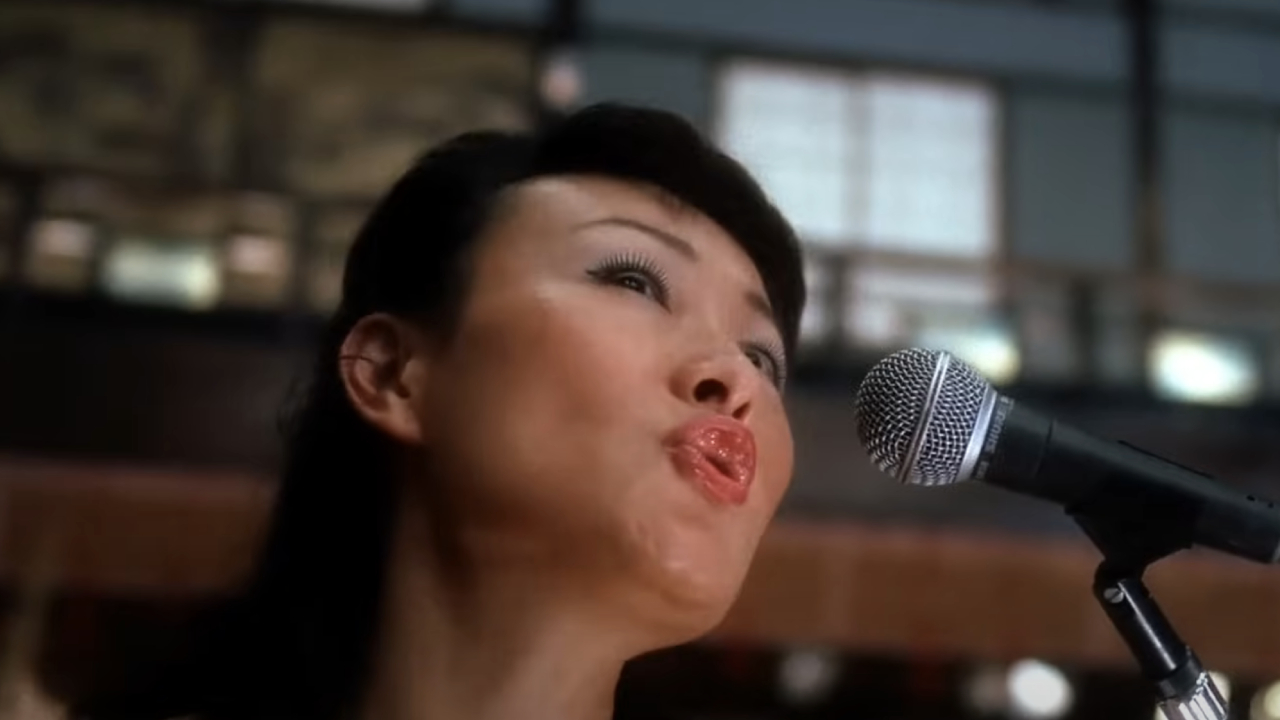
Kill Bill Vol. 1 ("Woo Hoo" - The 5.6.7.8's)
Before blood hits the screen at the House of Blue Leaves in 2003's Kill Bill Vol. 1, things are peaceful at the Japanese eatery. One major reason why is because the guests are treated to the head-knocking rock 'n roll song, "Woo Hoo," by The 5.6.7.8's, whom Quentin Tarantino discovered while shopping in Japan and wound up casting in the violent revenge movie.
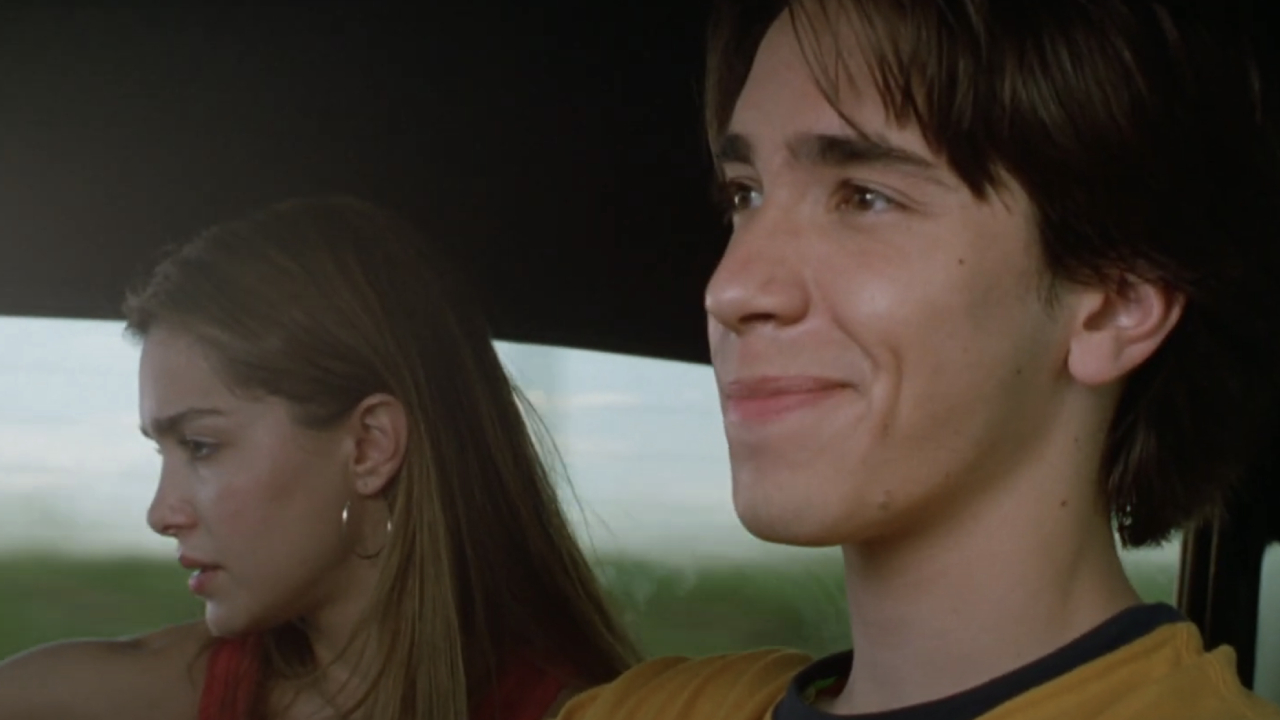
Jeepers Creepers ("Jeepers Creepers" - Paul Whiteman and His Swing Wing)
The lyric "Jeepers creepers, where'd you get those eyes?" takes on a more frighteningly literal meaning in Jeepers Creepers. The eponymous love song by Paul Whiteman and His Swing Wing plays during the final moment of the 2001 horror flick as the grotesque, villainous "Creeper" (Jonathan Breck) shows off his new "peepers," which he stole from Darry (Justin Long).
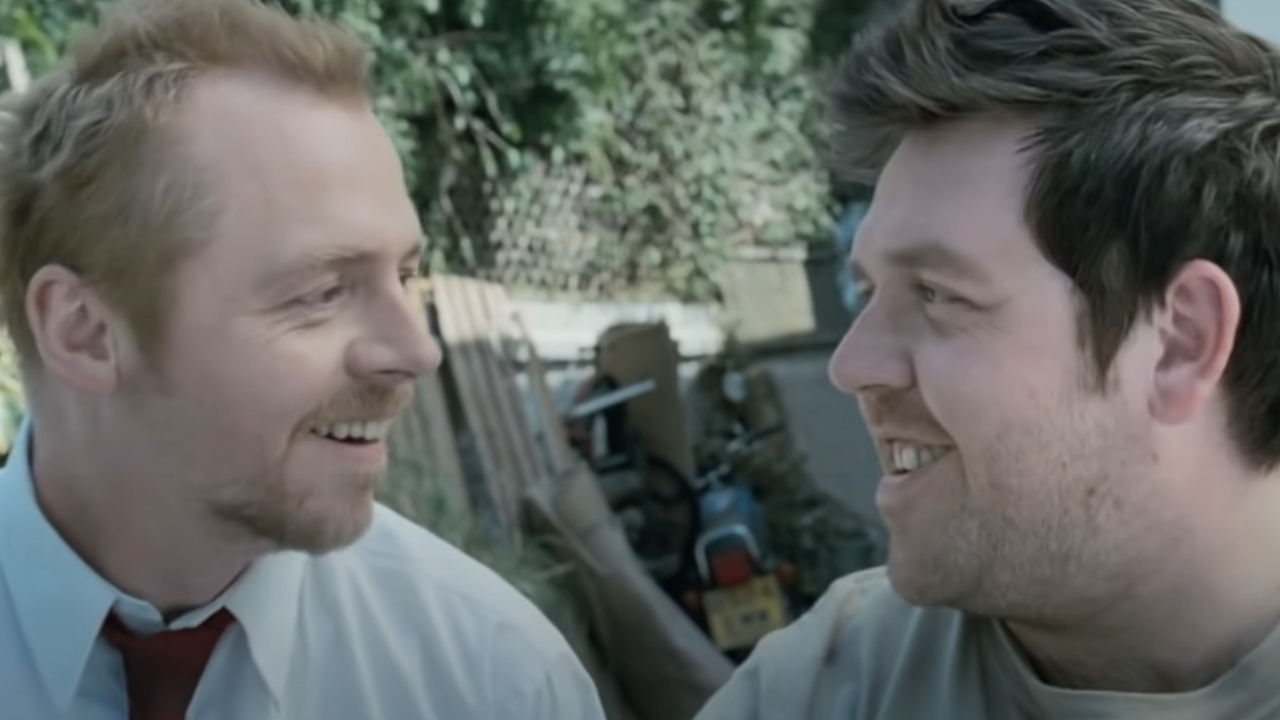
Shaun Of The Dead ("Don't Stop Me Now" - Queen)
Like most Edgar Wright films, there are many moments from Shaun of the Dead in which music plays a large role but the best takes place at the Winchester. Nearly every move Shaun (Simon Pegg) and the gang make when battling the bar's undead owner is in near-perfect sync with Queen's "Don't Stop Me Now," which randomly starts playing from the jukebox as they are desperate to stay undetected from the horde outside.
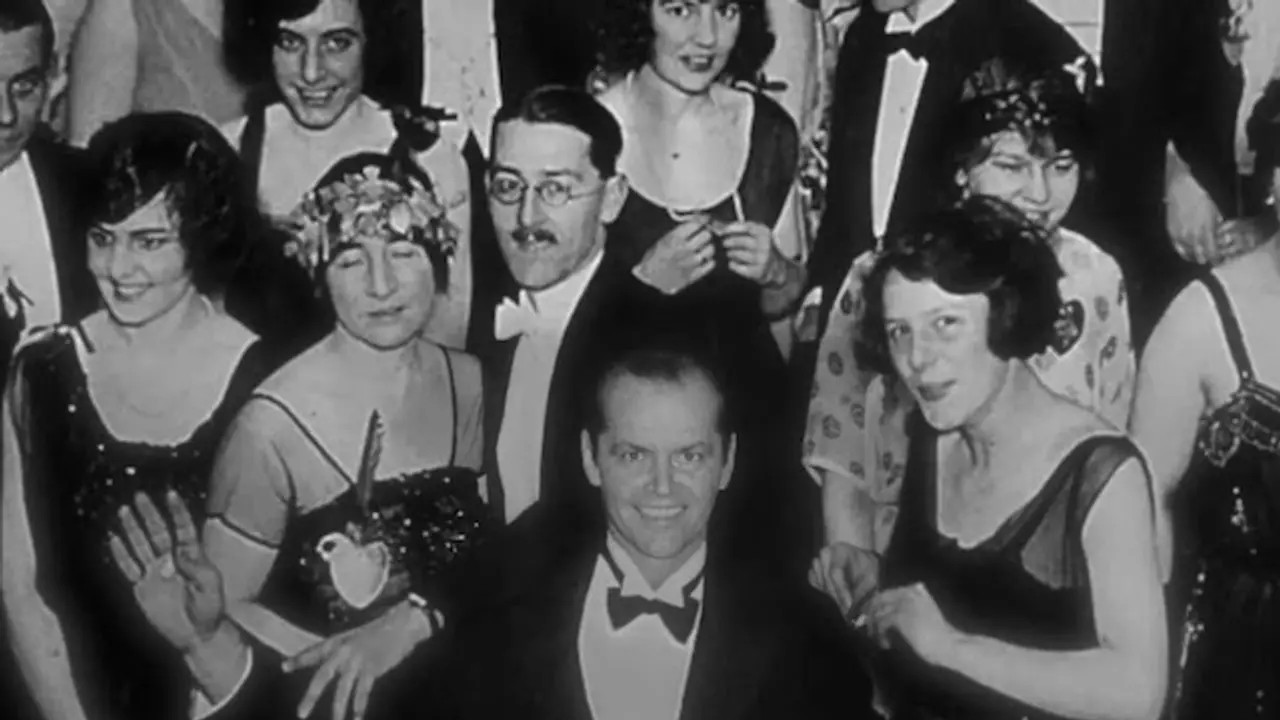
The Shining ("Midnight, The Stars And You" - Ray Noble And His Orchestra)
The final moment of Stanley Kubrick's adaptation of Stephen King's The Shining slowly zooms into a photo taken at the Overlook in 1921 with a man resembling Jack Torrance (Jack Nicholson) shown front and center. The chilling shot is accompanied by 1934's "Midnight, the Stars and You" –performed by Ray Noble and his Orchestra with vocals by Al Bowlly – which is most notable today for its inclusion in the 1980 horror classic.
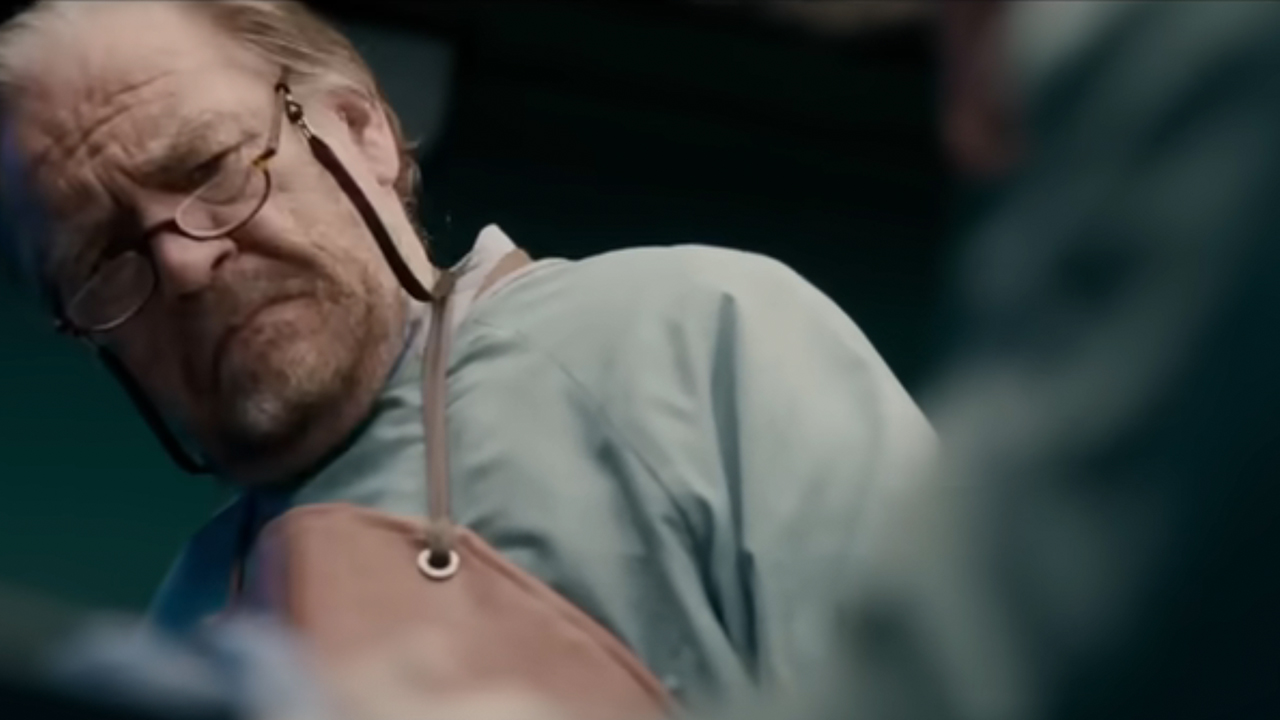
The Autopsy of Jane Doe ("Open Up Your Heart (and Let the Sunshine In)" - The McGuire Sisters)
In The Autopsy of Jane Doe, the titular corpse (actually a witch capable of nearly anything but moving a muscle) likes to taunt the father-son coroners examining her by playing the McGuire Sisters' version of "Open Up Your Heart (and Let the Sunshine In)" on the radio. The otherwise "shiny" tune makes a devasting reprise near the end when Austin (Emile Hirsch) believes he is being rescued by Sheriff Burke (Michael McElhatton) who repeatedly tells him to "open up" the stuck cellar doors until he hears him belt the song's chorus, indicating his nightmare is not yet over.
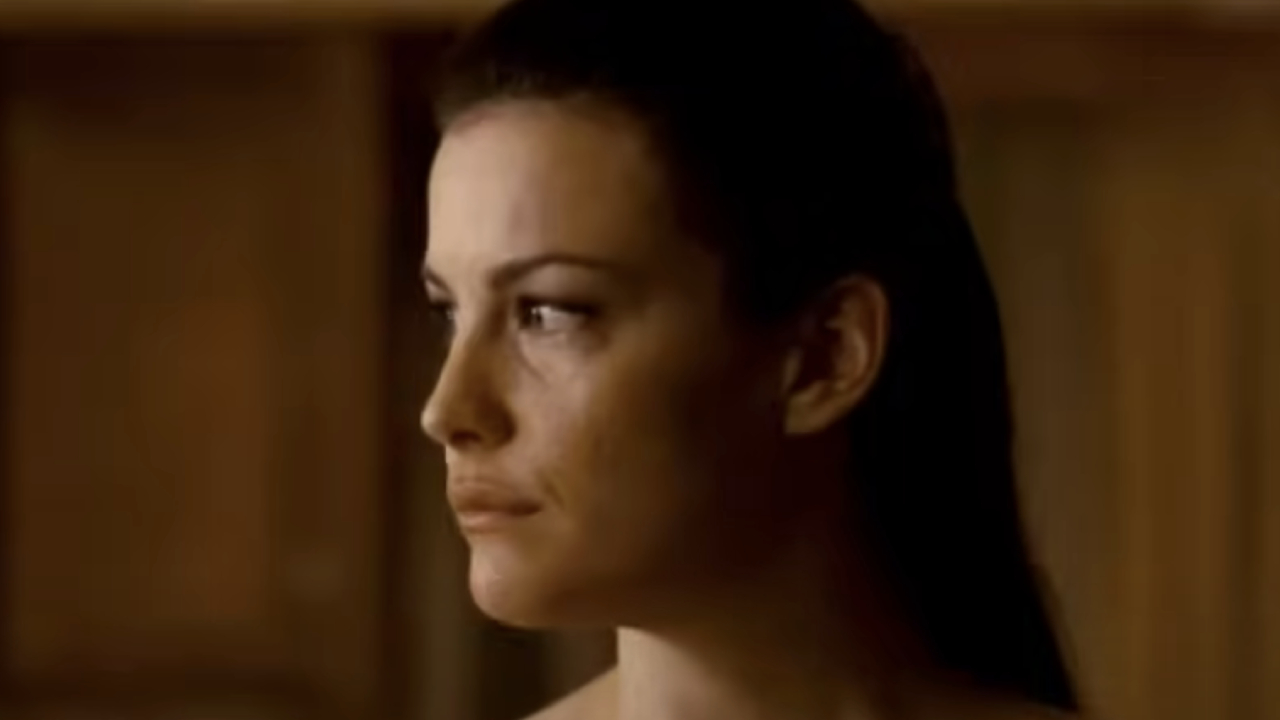
The Strangers ("My First Lover" - Gillian Welch)
Sometimes turning a happy song into nightmare fuel takes a little manipulation, such as how Gillian Welch's "My First Lover" appears in The Strangers. At one point in the 2008 home invasion thriller, a record scratch causes the romantic folk ballad to repeatedly loop on the lyric, "Quicksilver girl," which is enough to create relentless tension.
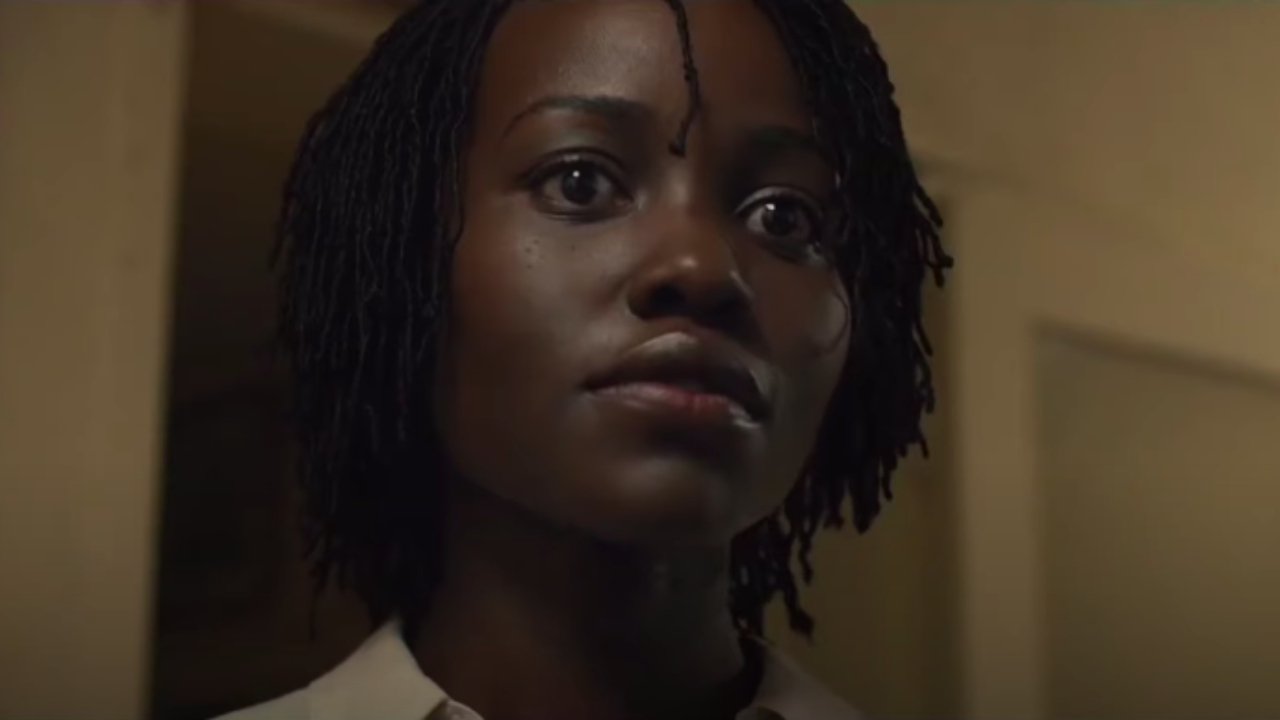
Us ("Les Fleurs" - Minnie Riperton)
Sung from the perspective of a flower, Minnie Riperton's 1969 hit "Les Fleurs" is a beautiful song about spiritual renewal. However, when it begins playing as the twist from the ending of Us is revealed and reaches its invigorating crescendo during the apocalyptic final shot, it creates a chilling juxtaposition for Jordan Peele's sophomore hit.
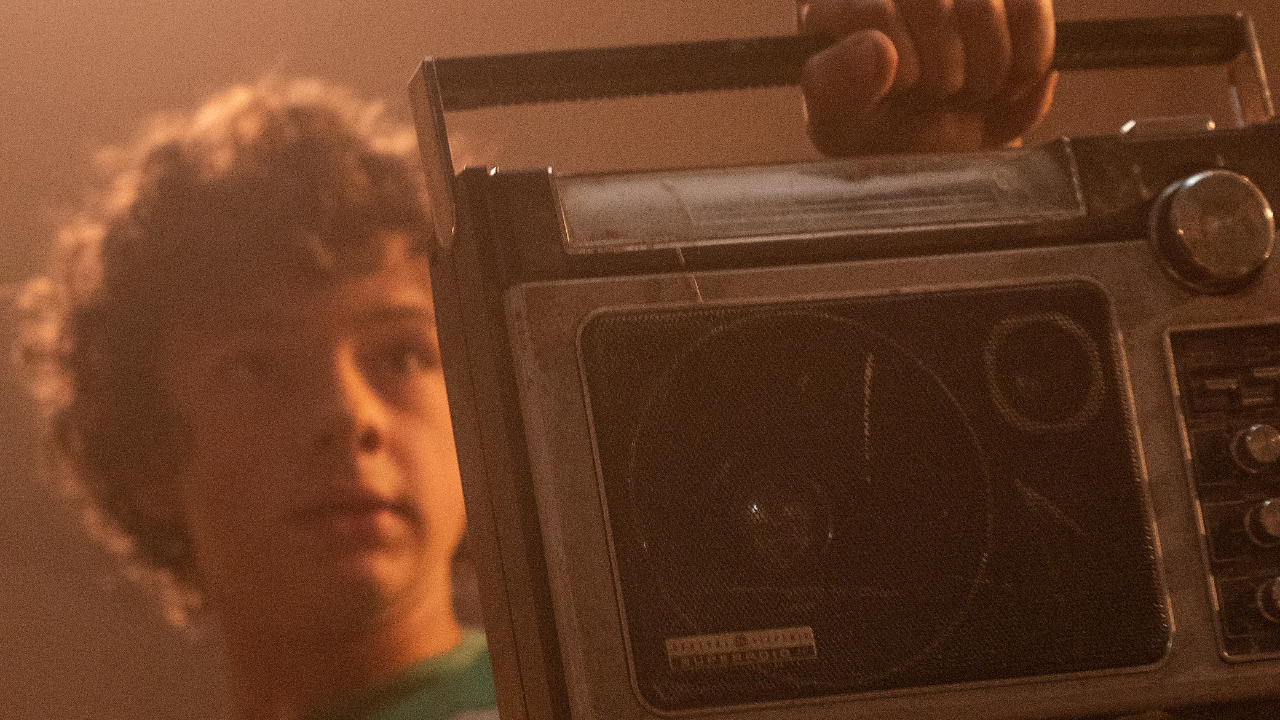
A Quiet Place Part II ("Beyond The Sea" - Bobby Darin)
In A Quiet Place Part II, Emmett (Cillian Murphy) tells Regan (Millicent Simmonds) that he has heard a radio station playing Bobby Darin's scintillating swing hit "Beyond the Sea" on repeat. She correctly deciphers this as a code sent from an island safe haven, which she and Emmett eventually find and, unwittingly, lead a sound-hunting alien to.
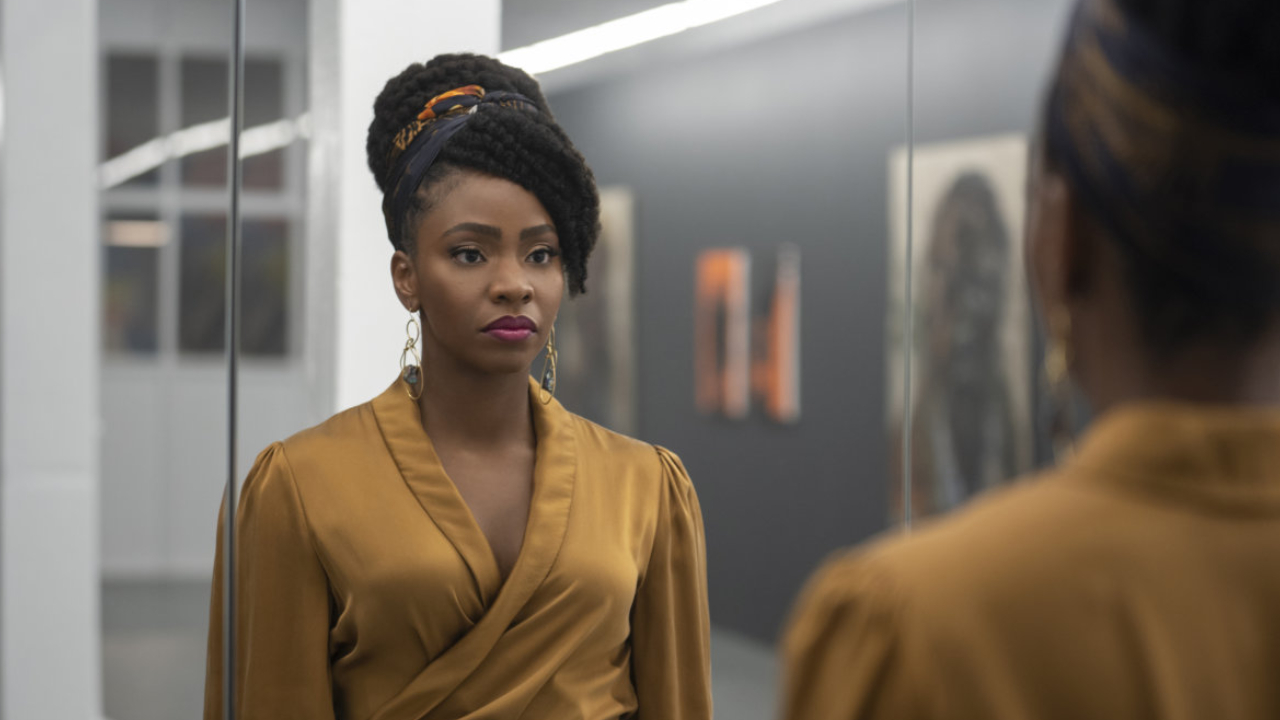
Candyman ("The Candy Man" - Sammy Davis Jr.)
Some might argue that 1971's Willy Wonka and the Chocolate Factory has its creepy moments, but Aubrey Woods' performance of "The Candy Man" is not one of them. However, by playing Sammy Davis Jr.'s rendition of the song and slowly fading it out with the sound of buzzing bees during the production logos serves as a perfect way to set the tone for the 2021 Candyman requel.
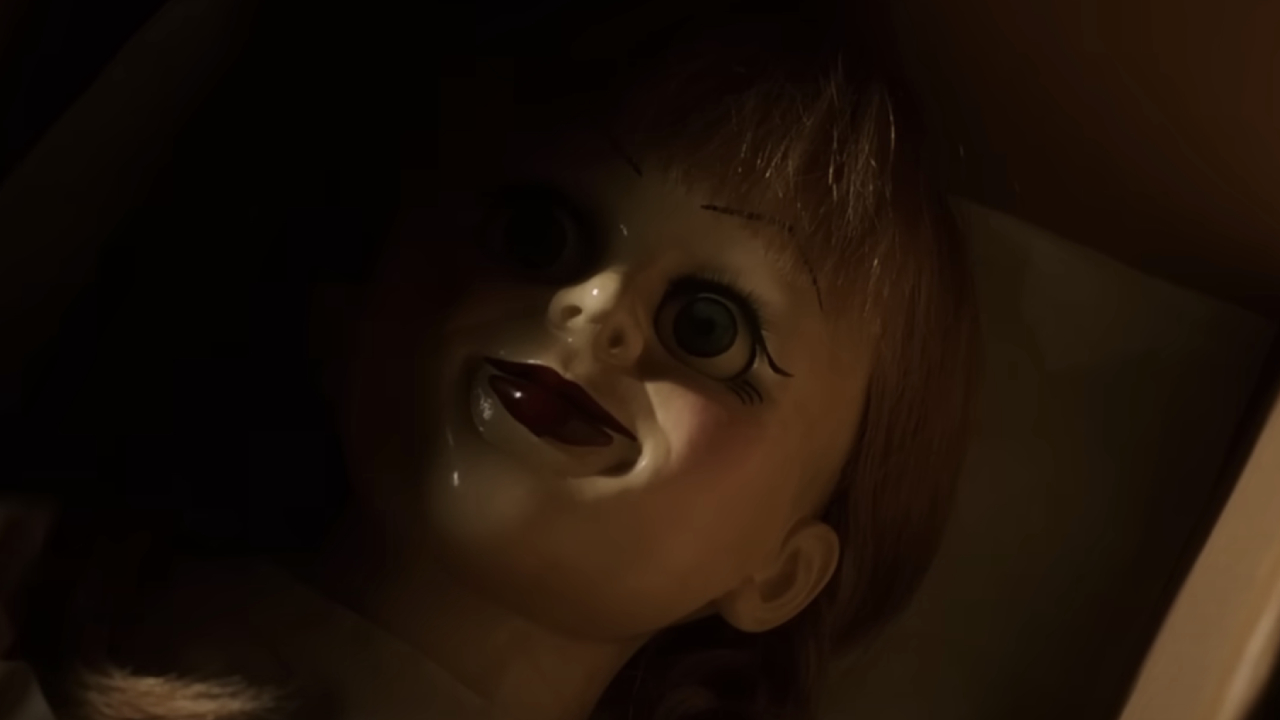
Annabelle: Creation ("You Are My Sunshine" - Charles McDonald)
The end of Annabelle: Creation from 2017 leaves off where the rising action of its 2014 predecessor begins, revealing how Malthus entered the creepy doll. Playing over the closing credits is Charle McDonald's rendition of "You Are My Sunshine," making it the ironic defacto theme of the Conjuring Universe movie.
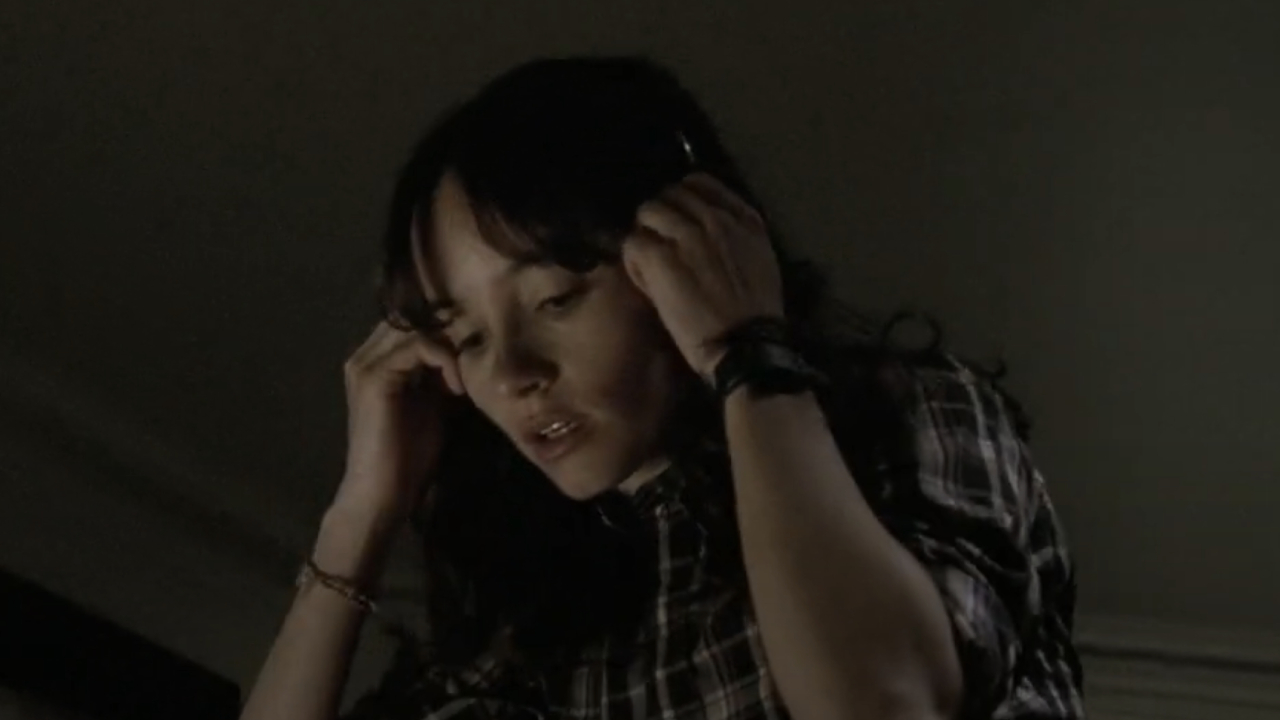
The House Of The Devil ("One Thing Leads To Another" - The Fixx)
Ti West's 2009 breakthrough feature, The House of the Devil, is a slow-burn horror film that waits to reveal its visceral frights with masterful pacing. During that time, he finds ways to catch you off guard with moments of levity, such as when Samantha (Jocelin Donahue) tries to distract herself from her creepy "babysitting" gig by dancing around her clients' house to The Fixx's "One Thing Lead to Another" on her tape player.
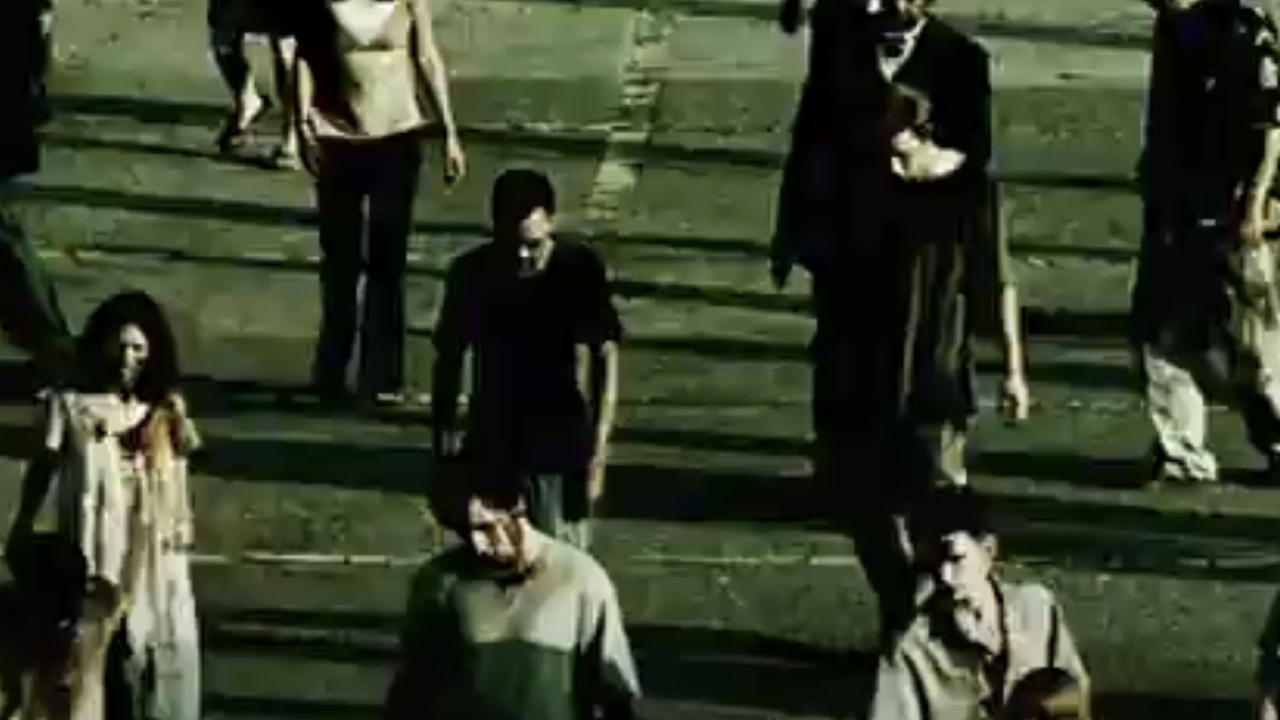
Dawn Of The Dead ("The Man Comes Around" - Johnny Cash)
Upon deeper examination, Johnny Cash's "The Man Comes Around" is a song about Jesus Christ's return to Earth on Judgment Day. Its foreboding apocalyptic message is greatly emphasized by its inclusion over the opening credits of Zack Snyder's 2004 remake of Dawn of the Dead.
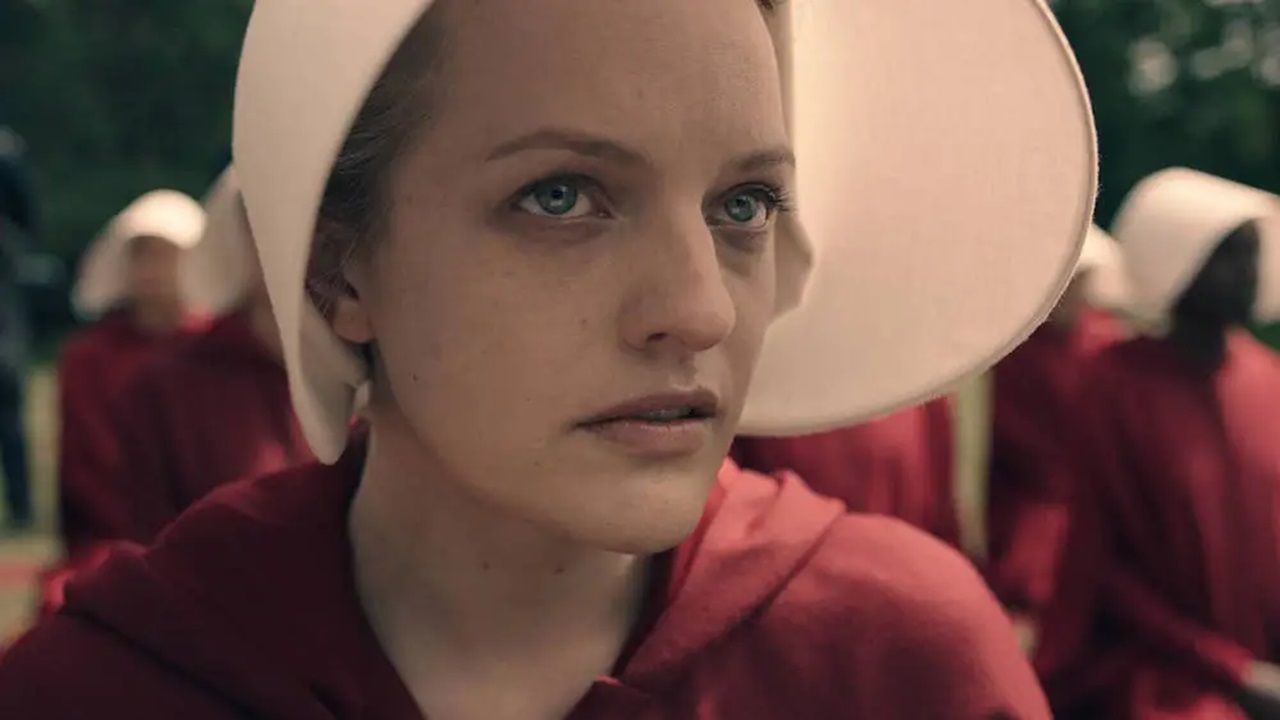
The Handmaid's Tale ("Cloudbusting" - Kate Bush)
Despite boasting one of Kate Bush's most cheerful melodies, "Cloudbusting" is actually one of her darkest hits, inspired by the true story of a boy whose father was taken away from him when he was abruptly arrested. However, that tale is far lighter than the story of The Handmaid's Tale, which uses the song in a scene from Season 3 in which evidence of a character's brutal murder is removed.
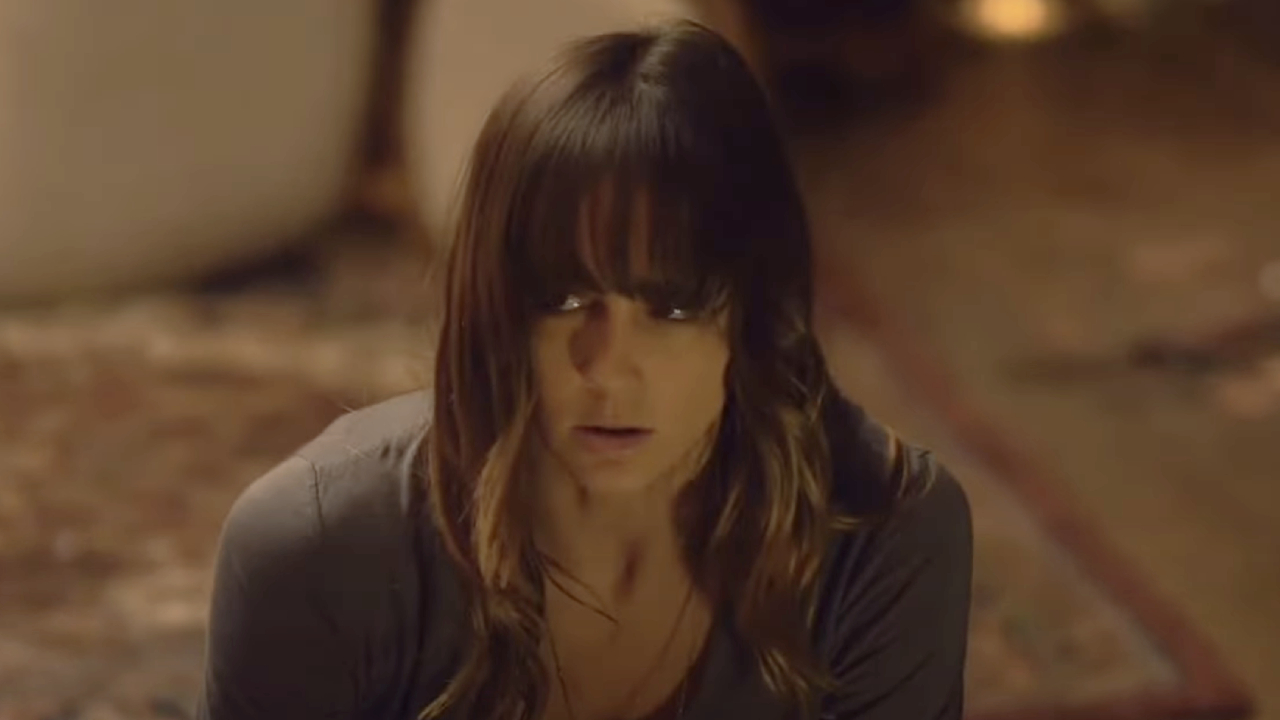
You're Next ("Looking For Magic" - Dwight Twilley Band)
Director Adam Wingard and writer Simon Barrett are known for using comedy in their horror movies, including their otherwise brutal 2013 home invasion thriller, You're Next. Much of the humor comes from the ironic use of the Dwight Tilley Band's "Looking for Magic" in two scenes, due to one victim of the masked assassins putting the 1977 pop tune on repeat accidentally before his death.
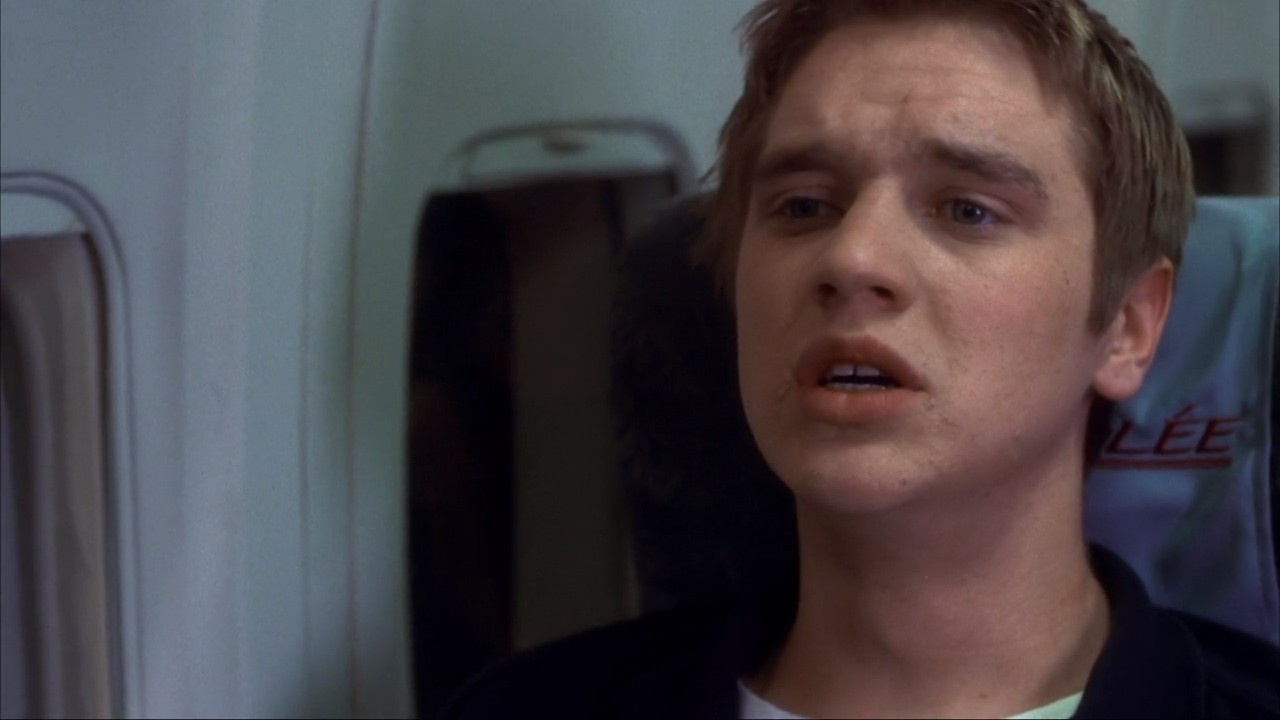
Final Destination ("Rocky Mountain High" - John Denver)
The uplifting music of John Denver has been used for ironically dark purposes in several movies and the most iconic example comes from the first installment of the Final Destination movies. Any time "Rocky Mountain High" is heard in the 2000 teen thriller is a signal that Death is near.
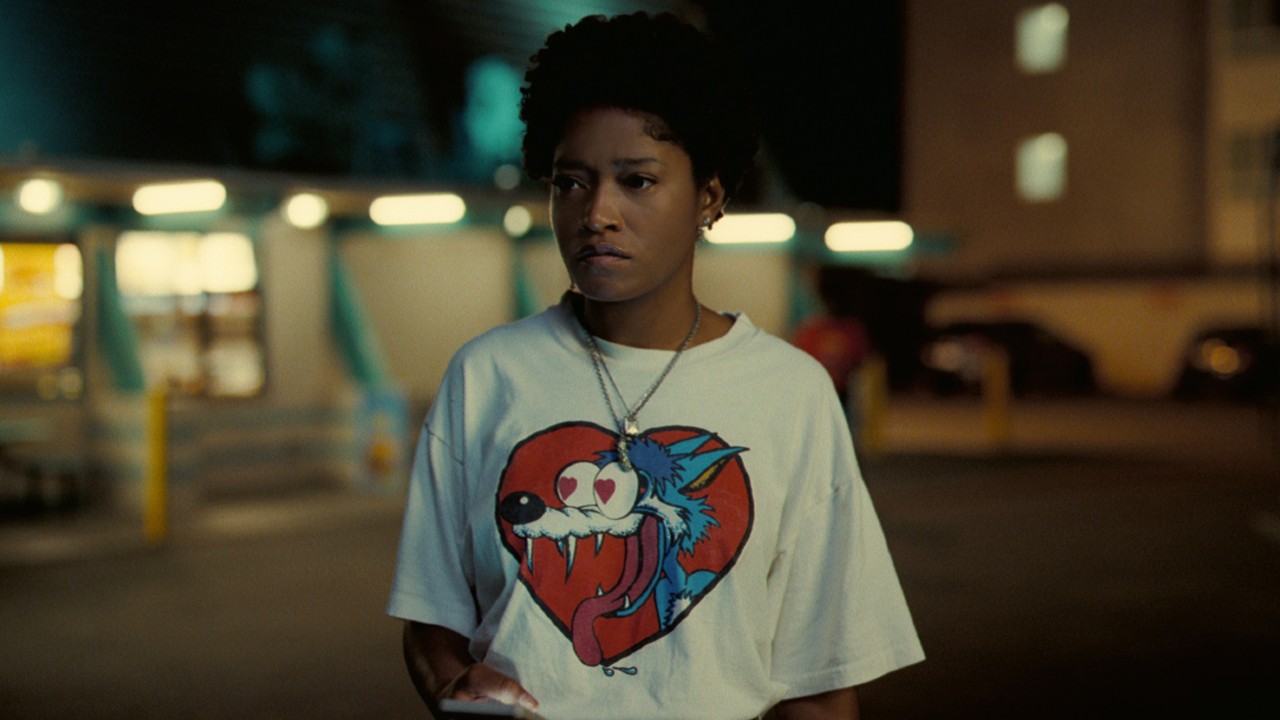
Nope ("Fingertips" - Stevie Wonder)
To be fair, Stevie Wonder's "Fingertips" never actually appears in Jordan Peele's third feature, 2022's Nope. However, a remixed version of it provides an ominous aura for the alien invasion movie's trailer.

